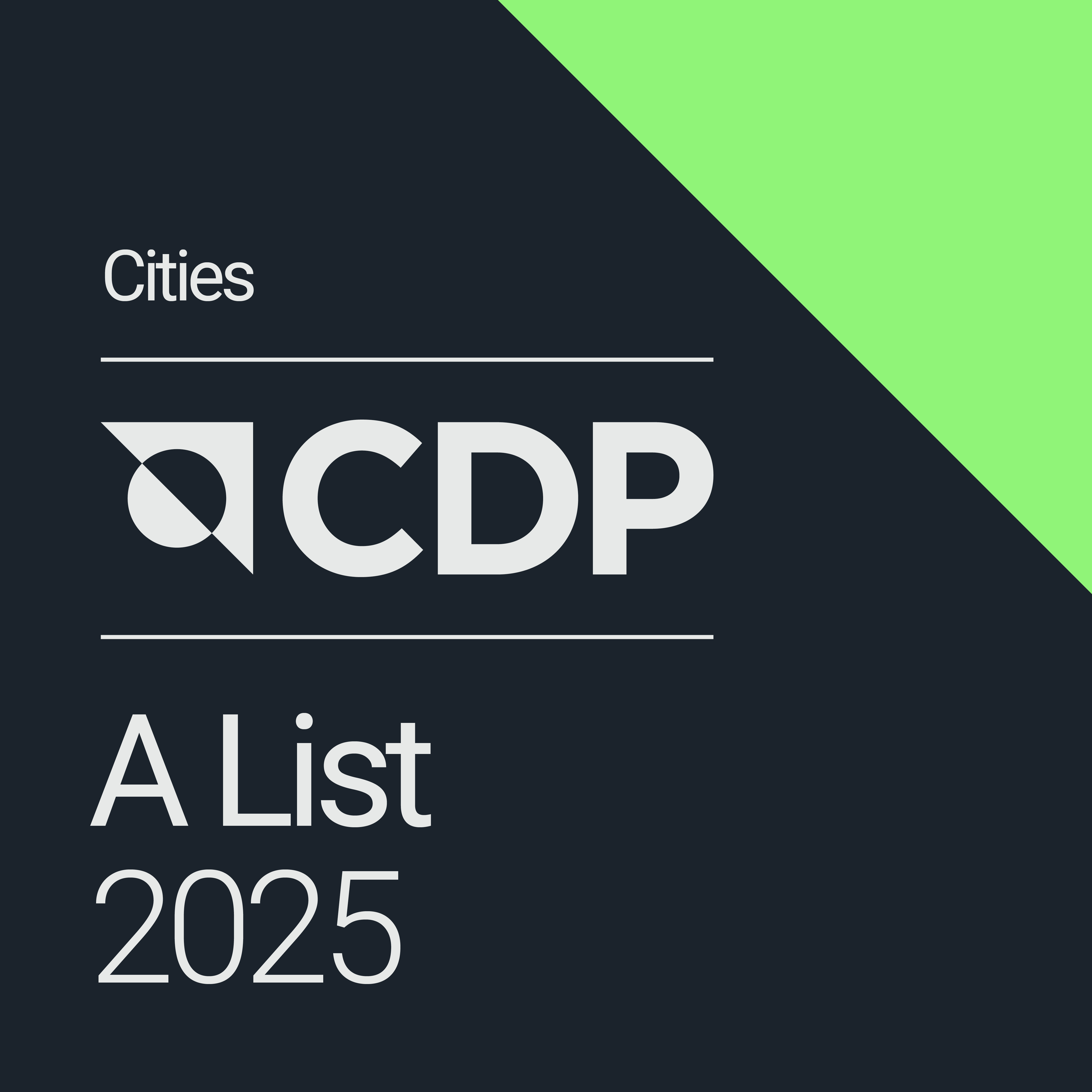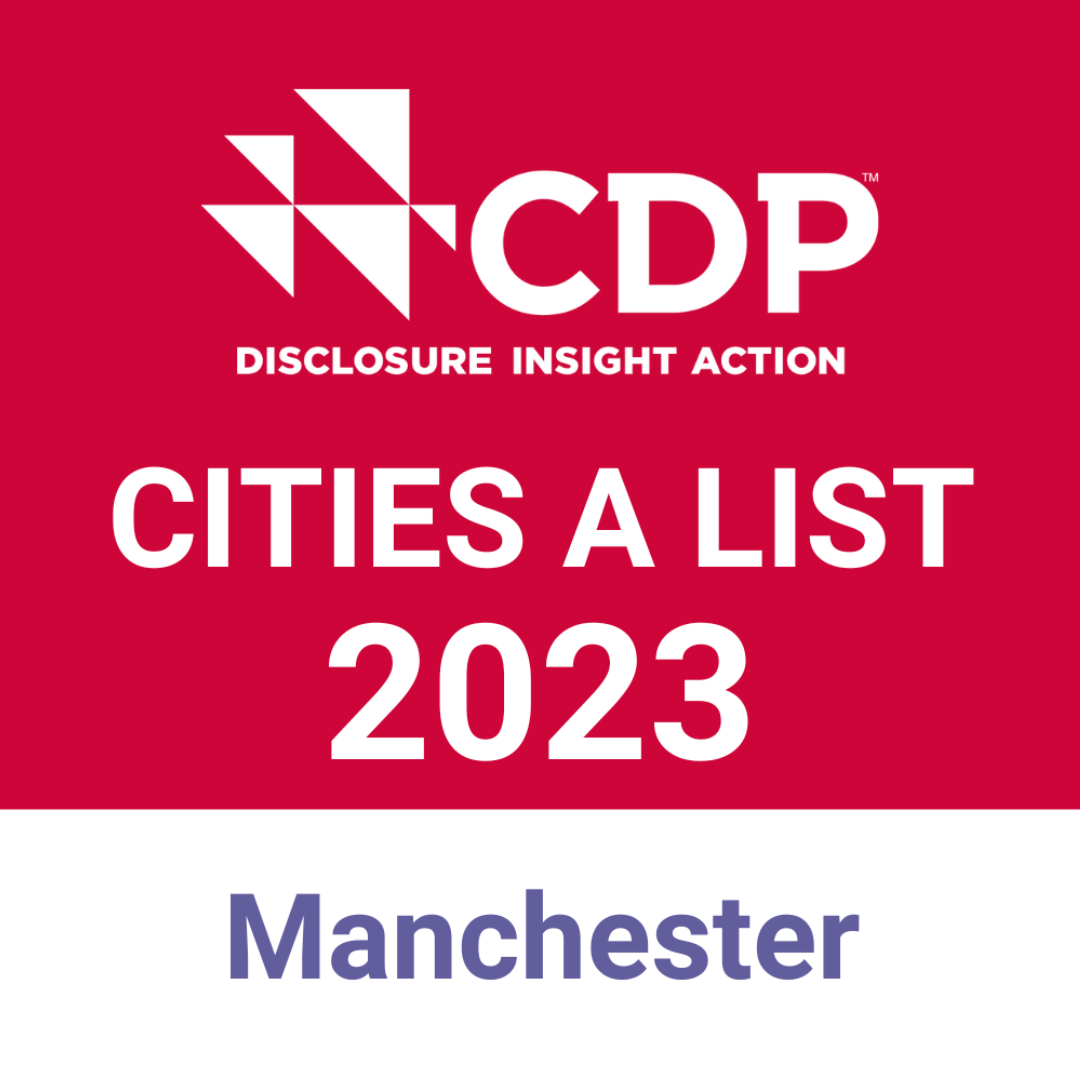
Manchester receives top score for climate leadership and action for fourth consecutive year
Manchester has made the prestigious CDP Cities A list for yet another year, maintaining our position as a city that is demonstrating a globally recognised commitment to climate leadership and transparent, data informed action to build resilience, manage climate impacts, and create a better future.

Delivering Manchester Climate Ready: The Plan 2025-2030 | Manchester Climate Ready Partnership networking event 2025
Members of the Manchester Climate Ready Partnership, wider stakeholders and community representatives are helping to turn Manchester’s zero carbon, climate resilient ambition into action.

Manchester receives top score from CDP for third consecutive year
Manchester has made the CDP Cities A list for the third year in a row, demonstrating a continued commitment to transparent and data-informed climate action for the city.

Net Zero New Buildings: shaping Manchester’s local plan
A new report, published today by Manchester Climate Change Partnership’s Net Zero New Buildings City Challenge Group, explores how local planning policy can be used to help reduce the city’s emissions from new buildings, and support efforts to stay within Manchester’s science-based carbon budget.

Accelerating Net Zero: Retrofit of Commercial Buildings in Greater Manchester
A new report, published today by Manchester Climate Change Partnership’s Commercial Building Retrofit City Challenge Group is aiming to help accelerate retrofit action in the commercial building sector in Greater Manchester.

Visioning a Zero Carbon Climate Resilient Manchester 2038 | Manchester Climate Change Partnership in-person event 2024
What does a healthy, green, socially just city where everyone can thrive look like? What short-term actions will help us move towards our vision? How can we inform and influence the early development of Manchester’s next 5-year Climate Change Framework to make our vision a reality?
This year’s in-person Partnership event centred around the theme of ‘Visioning a Zero Carbon, Climate Resilient Manchester 2038’.

Manchester’s Annual Emissions Report 2023
Manchester's latest Emissions Report shows that whilst progress is being made, as a city, we are not currently on track to reach our zero carbon target. We urgently need to see a step change in the pace and scale of climate action at all levels.

Manchester named a ‘climate action leader’ on Cdp a list for second year in a row
Manchester has been recognised by CDP as a city that is taking bold leadership on environmental action and transparency, despite the pressures of a challenging global economic situation.

Our Impact Report: How we are playing our full part in tackling climate change
Our latest Impact Report demonstrates how we are working together to help Manchester tackle the climate crisis.

Manchester Climate Change Agency: proud to be carbon literate
Manchester Climate Change Agency accredited as Gold-Standard Carbon Literate Organisation.


Manchester’s Climate Change Framework update: what it means and how you can join us
Manchester’s Climate Change Framework has been updated.

In Our Nature receives £2.5m National Lottery funding
In Our Nature initiative has been awarded £2.5m in funding from The National Lottery Community Fund.

